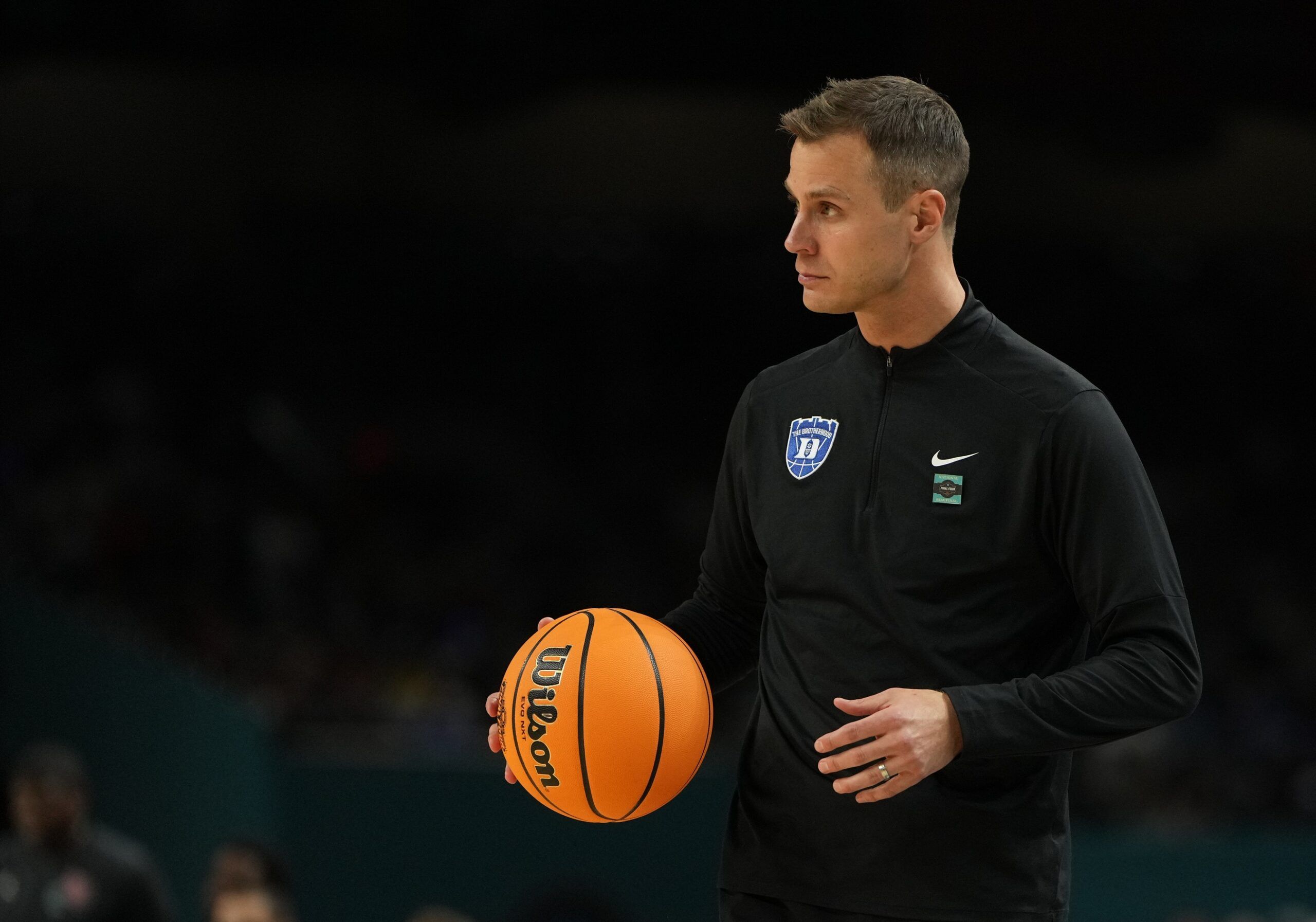Six months after voicing disappointment, Duke head coach Jon Scheyer publicly acknowledged why Caleb Foster now merits greater recognition. Scheyer’s change in tone highlights Foster’s perseverance and development following a difficult sophomore season marked by injuries and inconsistent minutes.
Despite being benched late in the year, Foster responded with renewed focus and energy in practice. His growth and steady attitude impressed Scheyer, who noted that Foster’s response to adversity reflected maturity and leadership.
Scheyer Admits Caleb Foster Deserves More Credit After Overcoming Setbacks
At Duke basketball’s media day on Sept. 24, 2025, head coach Jon Scheyer made it clear that Caleb Foster’s growth and steadiness have become vital to the team’s foundation.
“It’s consistency,” Scheyer said. “I think the best thing you can ask for as a coach is knowing what you’re going to get from a guy every single day.” Reflecting on Foster’s journey through his first two seasons, Scheyer explained that the path forward is now clear for the junior guard. “The recipe is very clear to him. It’s just a matter of going out there and doing it.”
Scheyer praised Foster’s approach, both in attitude and effort.
“The way that he’s worked, who he’s been as a teammate, as an older player embracing the details, whether it’s talk, whether it’s positioning, whatever it may be, he’s done that in a big way,” he said.
The coach emphasized that Foster’s dependability and competitiveness have stood out in a crowded roster.
“Not just what I’m going to get, but everybody in the building knows what they’re going to get from Caleb,” Scheyer added. “He’s just been really competitive. I’m proud of him.”
That recognition is significant considering Foster’s challenging sophomore campaign. A season-ending injury cut short his freshman year after a promising start. As a sophomore, he opened the year as a starter in Duke’s first seven games before being moved to a reserve role, finishing the season coming off the bench.
Despite reduced minutes and production, Foster chose to stay rather than transfer, a rare decision in an era defined by roster turnover. Duke joined Boston University and Tennessee as the only programs nationally to retain all scholarship players after the 2024-25 season.
Scheyer acknowledged how easily Foster could have left.
“I guess it could be easy for anybody to leave,” he said during a July 8 press conference. “Same thing for us. We could’ve gone in the transfer portal or (Foster) could’ve just said, ‘Man, I’m going somewhere else.’”
Instead, Scheyer said their conversations centered on accountability and growth.
“It wasn’t about promises,” he noted. “It was about what he has to do, what he controls.”
Now listed at 6-foot-5 and 205 pounds, Foster has added muscle since his 197-pound sophomore season. Over his first two years, he averaged 6.1 points, 2.0 rebounds, and 1.7 assists in nearly 20 minutes per game, while shooting 37% from three-point range. His willingness to stay and develop, Scheyer said, reflects the maturity and resilience Duke hopes to build around.






















